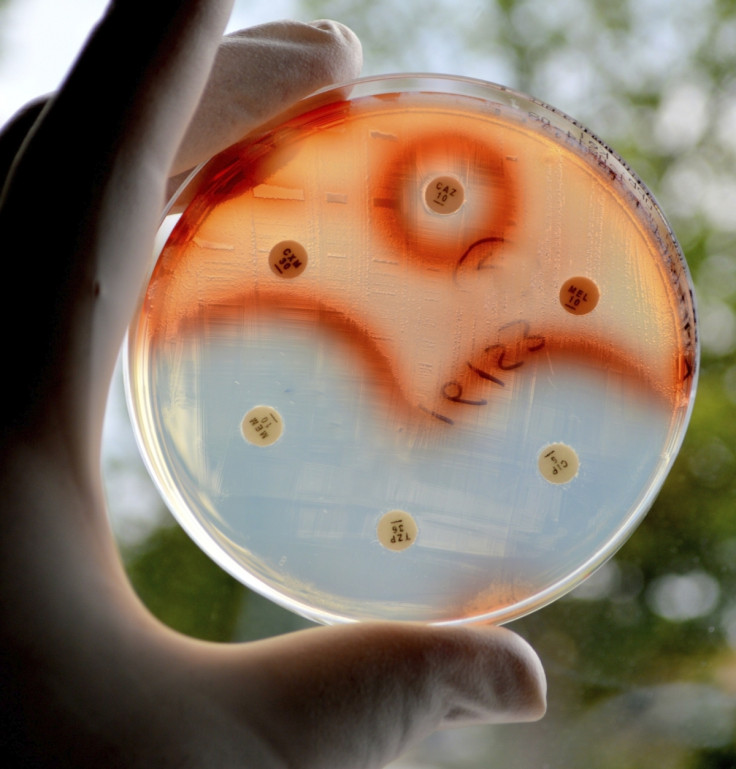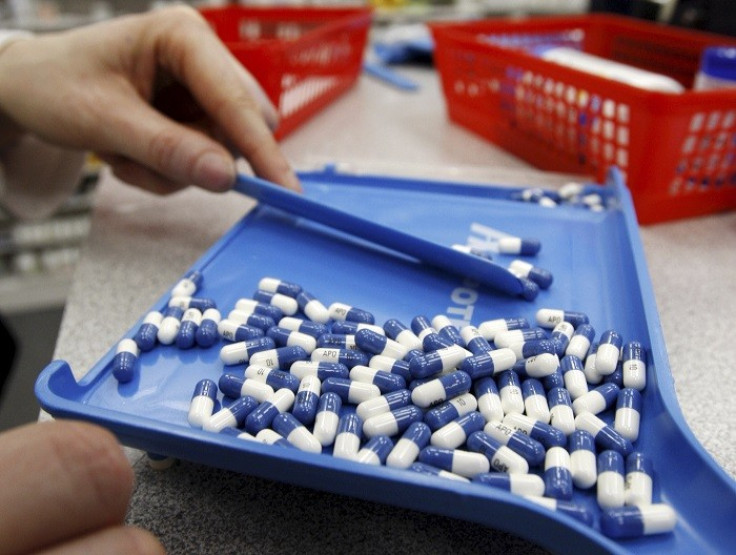World Antibiotic Awareness Week: Why resistance matters and what you can do to help

Antibiotic resistance has been touted as one of the biggest threats to our future. As the pipe of new drugs runs dry, we are at risk of being killed off by routine infections. As Margaret Chan, director-general of the World Health Organization, said in 2012: "If trends continue unabated, the future is easy to predict.
"Some experts say we are moving back to the pre-antibiotic era. No. This will be a post-antibiotic era ... A post-antibiotic era means, in effect, an end to modern medicine as we know it. Things as common as strep throat or a child's scratched knee could once again kill."
As a result, the first ever World Antibiotic Awareness Week is being held between 16 and 22 November. WHO says the week aims to increase awareness of global antibiotic resistance to encourage better practice among both the public and health professionals.
The theme of the campaign, Antibiotics: Handle With Care, aims to make people aware our antibiotics are a "precious resource" and need to be preserved. Speaking to IBTimes UK ahead of its launch was Diane Ashiru-Oredope, pharmacist lead for antimicrobial resistance and stewardship for Public Health England.
"What we need to get across is that if we don't have antibiotics, very simple cuts will once again kill," she said. "And that affects every single illness. We wouldn't be able to treat cancer because are more likely to die from the infection they get because of the chemotherapy rather than the cancer itself."

Further to World Antibiotic Awareness Week, PHE also supports European Antibiotic Awareness Day held on 18 November and in 2014, PHE launched its antibiotic guardian campaign to raise awareness of the issue.
Ashiru-Oredope said that in the past, they had very much focused on raising awareness about the dangers of antibiotic resistance, but they did not know how many members of the public took note or cared. The guardian campaign was a way of getting people to make a pledge to say they would take personal action to limit the problem.
Antibiotic resistance
Antibiotic resistance is when an antibiotic no longer works to treat infections. Bacteria naturally mutates to become immune to antibiotics, however this process is being significantly sped up through the overuse and misuse of the drug. Overprescribing and patients not finishing their course of antibiotics are also key factors.
The more you use an antibiotic, the more opportunity bacteria has to adapt and become resistant, thus allowing it to grow, spread and cause infections.
If antibiotics are continued to be use the way they are now, the number of resistant bacteria will increase and we will run out of antibiotics able to kill the bacteria and fight infection.
"There's a lot of information out there and it's in the news often," she said. "People are more aware but they just hear it. What they often don't get told is what they can do about it. It feels like there's a lot of doom and gloom – antibiotic resistance is coming but there is no personal action they can take. I think because of that the knowledge isn't embedded."
She said after people make a pledge, they self-report having increased knowledge of antibiotic awareness and change their behaviours accordingly.
But what can people and healthcare professionals do? Ashiru-Oredope said both have a big role to play. Doctors need to spend time explaining to patients why they don't need antibiotics, while patients need to understand that the body will fight certain infections on its own. She said: "Especially if they're fit and healthy – the cold, flu, most coughs, sore throats – will get better on their own so they shouldn't demand antibiotics from their doctor.
"For healthcare professionals and people who prescribe, it's for them not to prescribe when the patient says they need antibiotics. Spending that couple of minutes explaining to the patient why you will not prescribe. Because as well as resistance there's side effects and sometimes people don't understand." In addition, there is the idea that antibiotics will validate people having a real illness.
And these messages are especially important in the run up to winter and flu season. Ashiru-Oredope said: "We're not saying don't go to the doctor, we're saying be aware there are illnesses that will get better on their own ... I think for me, we want to move away from just awareness. We want people to get engaged and know what they can do. It's giving people simple actions they can take.
"Antibiotics are 70 years old. We need to keep them working - people will get infections, we don't want to go back and it is happening already. There is research going on to bring in new antibiotics but the problem with that is the resistance will happen to those antibiotics again. We have to work on people being good stewards. The pipeline will go dry."
© Copyright IBTimes 2024. All rights reserved.







